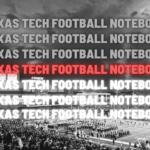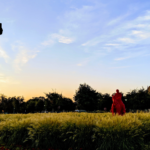An oh, so cool profile from Sports Illustrated’s Mike Piellucci where he profiles the Texas Tech meat judging team, the stress, the highs, the lows, and all of the National Championships that these students and staff have earned as a part of the meat judging team. The prose here is absolutely incredible, and here’s just a few bits, but this is totally worth your time and absolutely something you need to invest 30 minutes reading today.
On what it takes to be a meat-judging champion.
The skill set of a champion meat judge is both eminently teachable and difficult to master: quick decision making, critical reasoning, self-assurance and, above all, the ability to quiet one’s mind for upward of six hours standing in frigid temperatures and total silence. “You have to fight your own demons in the meat judging cooler,” says Erin Beyer, who judged on Texas Tech’s 2015 team and coached in ’17.
On Texas Tech’s dominance.
Today the Red Raiders are the Alabama football of the meat judging world. Under the guidance of Coach Miller, Texas Tech has reset the standards of collegiate meat judging excellence. Tech has captured seven of the last 11 national championships, highlighted by a three-year stretch from 2015 through ’17 in which it won a staggering 19 of 21 major contests. The crown jewel came in ’17, when Tech became the first and only school to go undefeated since the major schedule expanded to seven events in 1981. Says Travis O’Quinn, a Tech alum who’s now the coach and faculty sponsor of Kansas State’s meat judging team, “What they’ve done ranks right up there with the John Wooden UCLA Bruins. That level of dominance is seldom seen in any athletic competition.”
On what it takes to win.
But according to O’Quinn, the easiest explanation for Texas Tech’s dominance might be the most insurmountable of all: “They just have a dire commitment to do more than what everyone else is willing to do consistently.”
The team decamps for Friona by 1 p.m. each Friday, returning to Lubbock around 8 or 9 that evening. The next morning they’re in the cooler at 4 a.m. for Super Saturdays, an all-day gauntlet that simulates contest conditions and can stretch up to 12 hours. That’s on top of two more weekday practices squeezed in around students’ class schedules. Outside of contest weeks, that cycle repeats itself every week of the academic year. It works—and nobody, from the students to the coaches, wants to be the team responsible for breaking the cycle of success. “There’s always going to be that pressure because you have the teams before you that have done so many great things,” Schertz says.










